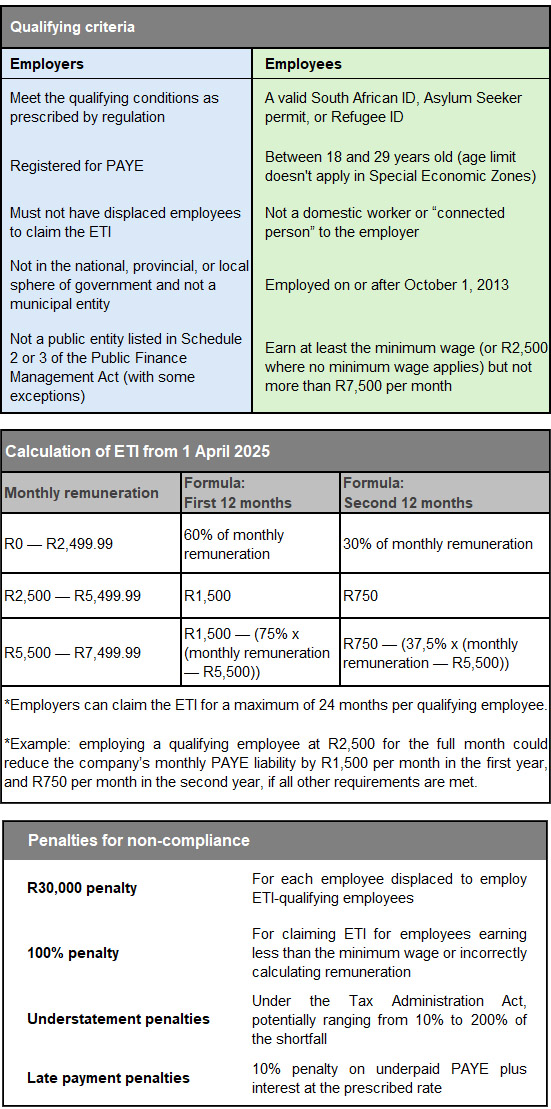Your Tax Deadlines for June 2025

- 06 June – PAYE submissions and payments
- 25 June – VAT manual submissions and payments
- 27 June – Excise duty payments
- 30 June – VAT electronic submissions and payments, & CIT Provisional Tax payments where applicable.
How to Untangle Your Personal and Business Finances

“Mixing personal and business finances might seem harmless, but it’s a costly mistake that can lead to tax headaches, legal risks, and financial chaos.” (Amanda Painter)
Mixing personal and business finances is so easy, particularly at the beginning. The company needs something, but money hasn’t come in, so you extend a small loan. You pay yourself back, by paying for the groceries on the company card.
A recent report by the US Federal Reserve on economic wellbeing has revealed that 39% of small business owners use personal funds to cover business expenses. This creates unnecessary risk and could expose both parties to potential audits, bankruptcy and even criminal prosecution. So, how do you untangle personal and professional spending without creating more chaos? These are our five tips.
1. Open a separate business bank account
The first step is getting a separate bank account for your business. This small step already makes it so much simpler to keep all income, expenses, and taxes distinct from your personal finances – giving you clarity and protection in case of an audit. Once your account is open, ensure all business payments go in and out of it exclusively. Resist the temptation to make personal purchases on your business card even just once.
2. Apply for a business credit card
A business credit card can be a powerful tool to keep finances clean and establish credit history for your company. It allows you to track spending, earn business-relevant rewards, and build a credit score separate from your personal one.
According to a 2022 Nav Small Business Survey, 45% of business owners didn’t even know they had a business credit score. This is a missed opportunity – strong business credit can help with financing, insurance, and vendor relationships down the line.
3. Pay yourself a salary (or draw consistently)
Many business owners pay themselves sporadically or in large lump sums, depending on how much is left over each month. This creates cash flow chaos and a personal dependence on the business that’s hard to manage. Instead, create a set payment structure, either paying yourself a salary or a set amount on certain dates. This structure will help you plan personally and track business performance more accurately.
4. Use accounting software
Manual spreadsheets can work in year one, but as soon as your business gains momentum, you’ll need robust tools. Software like QuickBooks, Xero, or Wave allows you to categorize expenses, reconcile accounts, and prepare for tax season with confidence.
A study by Intuit QuickBooks showed that 69% of small business owners who used accounting software reported greater clarity over their finances and fewer tax-related errors. Automating your bookkeeping and syncing accounts ensures your records are always up to date and SARS-ready.
5. Work with a bookkeeper or accountant from the outset
It’s tempting to wait until tax time or a cash flow crisis to call in a pro. But a good accountant is a strategic partner, not just a compliance necessity. They can help you optimise deductions, structure your pay, and ensure your financial systems scale with your business.
According to a survey by the National Small Business Association, 42% of business owners spend over 80 hours per year on taxes. A qualified accountant or tax practitioner can reduce that significantly, while helping you avoid costly mistakes. Look for someone with experience in your industry and business model.
The bottom line
Separating your personal and business finances is an important step to helping your business grow. Clean books help you make smarter decisions, secure funding, and sleep better at night. Whether you’re just getting started or several years in, it’s never too late to draw the line. Set boundaries now, and you’ll thank yourself later.
Youth Day: How Businesses Can Benefit from the ETI

“Trust the young people; trust this generation’s innovation. They’re making things, changing innovation every day.” (Jack Ma, Co-Founder Alibaba Group)
South African businesses are always looking for ways to foster growth and innovation while still reducing costs.
One way to achieve both is to employ young people. Young workers bring unique advantages that can transform your organisation. What’s more, the government subsidises part of the employment costs for qualifying young employees through SARS’ Employment Tax Incentive or ETI.
What young employees can bring to your business
- Tech savvy: More comfortable with new technologies, young employees can accelerate digital adoption in your business.
- Fresh perspectives: Young employees often introduce innovative approaches and creative solutions.
- Adaptability: Young people tend to be more flexible and better equipped to respond to sudden changes and unexpected circumstances.
- Fast learning: Fresh out of formal education, young people often learn more readily and are eager to apply their skills.
- Energy and enthusiasm: The energy and optimism of younger workers can positively impact team dynamics and workplace morale.
- Future-proofing: Young employees help businesses keep up to date with technological developments, emerging trends and the millennial and Gen Z markets.
How the ETI benefits local companies
The ETI makes it more cost-effective for companies to employ young people and to harness all the benefits mentioned above.
Essentially, this incentive subsidises part of your employment costs for qualifying young employees for two years. There is no limit to the number of qualifying employees that an employer can hire.
The young employees’ wages are paid by the employer in full, and the ETI is claimed by reducing the employer’s monthly Pay-As-You-Earn (PAYE) liability by the calculated ETI amount. This creates immediate positive effects on your cash flow.
It goes without saying that hiring more employees at a lower cost – and the boost of youthful energy they bring – will positively impact productivity and innovation in any company. Many South African businesses use the ETI to create a competitive advantage, build a talent pipeline for the future, and enhance their Corporate Social Responsibility credentials.
How the ETI works

* Adapted from SARS
Common ETI pitfalls
- Claiming for non-qualifying employees
- Incorrectly calculating ETI amounts
- Failing to adjust claims after the 12-month threshold
- Not maintaining proper payroll records
- Overlooking the ‘monthly remuneration’ definition and required adjustments.
How professional assistance makes a difference
The ETI offers significant benefits, but it also comes with considerable compliance requirements and potential penalties for incorrect implementation.
Our team of experienced accountants and tax professionals stays up to date with the ever-changing regulations, uses professional systems to identify qualifying employees, accurately calculate claims, and keep proper records, and is ready to assist if any issues, compliance checks or audits arise.
In this way, we ensure your business can maximise the ETI benefits – and the benefits of having young employees – while minimising compliance risks.
Speak to us if you need help taking advantage of the ETI.
